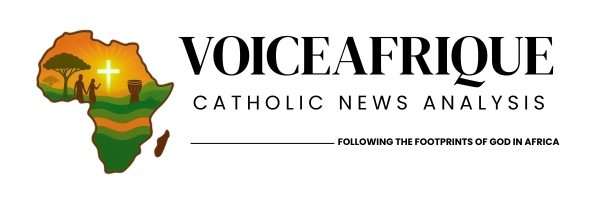Africa’s Ecclesial Awakening: Church Leadership Reimagined at PACTPAN Jubilee Congress
Abidjan, Côte d’Ivoire, August 6, 2025
In the heart of Abidjan, the PACTPAN Jubilee Congress has become the epicentre of a quiet but profound ecclesial revolution. Far from the grandeur of decrees or papal proclamations, this gathering of theologians, clergy, scholars, lay faithful and young people is reshaping the narrative of Church leadership—placing Africa not at the margins, but at the helm.
The congress is a melting point of diversity, drawing people of different continents, tongues, races and colours, reminiscent of the Pentecost – diverse tongues, a common spirit and a yearning for something deeper: a Church that listens, includes and walks together. The message was clear—Africa is not the Church’s mission field. It is its theological compass.
Reclaiming Africa’s Conciliar Legacy
In a stirring presentation, Fr. Prof. Paschal Okpaleke delivered a paper on “Conciliar Traditions in Africa: From Nicaea to Vatican II”, challenging the notion of African marginality in Church history. “Africa was there,” he declared, “not as a guest, but as a builder.”
He revisited the contributions of African Church Fathers to early councils and warned against modern assemblies that prioritise prestige over substance. Okpaleke urged the Church to return to its roots, where councils were inclusive gatherings of East and West, united by faith rather than formality. As synodality gains momentum, he insisted, Africa must not merely participate—it must lead.
Synodality and Shared Leadership
From Austria, Prof. Johann Pock offered a transformative vision of Church leadership. His paper, “The Consequences of Synodality in Church Leadership”, emphasised authority rooted in service and discernment rather than hierarchy.
“In Austria,” he noted, “we see one parish, many priests. One community, many voices.” Laypeople, he explained, are stepping into leadership roles not out of necessity, but conviction. Synodality, Pock argued, is more than reform—it is spiritual renewal.
A Prophetic Challenge to Prosperity Theology
Fr. Prof. Paulinus Odozor of the University of Notre Dame delivered a searing critique of prosperity-driven Christianity in his paper, “The God of Hope: Acting Rightly by Thinking Rightly About God.” He questioned whether the Church worships the God of Jesus or the god of status and spectacle.
“Hope”, he said, “is not optimism. It is theological integrity.” His call was clear: without right worship, there can be no justice. Odozor’s message was both indictment and invitation—a plea for the Church to rediscover its prophetic voice.
Ujamaa: A Gospel of Belonging
Sr. Prof. Florence Oso, EHJ, brought a distinctly African vision to the congress, proposing Ujamaa, an ethic of familyhood and solidarity—as a model for ecclesiology. Her paper, “Building Ujamaa: Rearticulating the Church as Family,” urged the Church to move from bureaucracy to belonging.
She advocated for palaver, the African tradition of open-circle dialogue, as a framework for synodality. “To be human is to belong,” she said, calling for a Church that is a communion of communions, not a hierarchy of silos.
Africa’s Roadmap for the Global Church
In all the papers, a common thread emerged: Africa is not seeking inclusion; it is offering direction. From historical reimagination to leadership renewal, and from theological critique to cultural wisdom, the continent is redefining what it means to be Church in the 21st century.
“A Church that cannot laugh cannot love,” Fr Okpaleke quipped, reminding attendees that joy is as vital as doctrine. The congress was not a display of perfection but of participation, where bishops listened, sisters challenged, and laity led.
In the dust of Abidjan’s corridors, the Church was not just discussed; it was lived. Africa’s ecclesial awakening is not a moment. It is a movement. And the world is beginning to follow.





